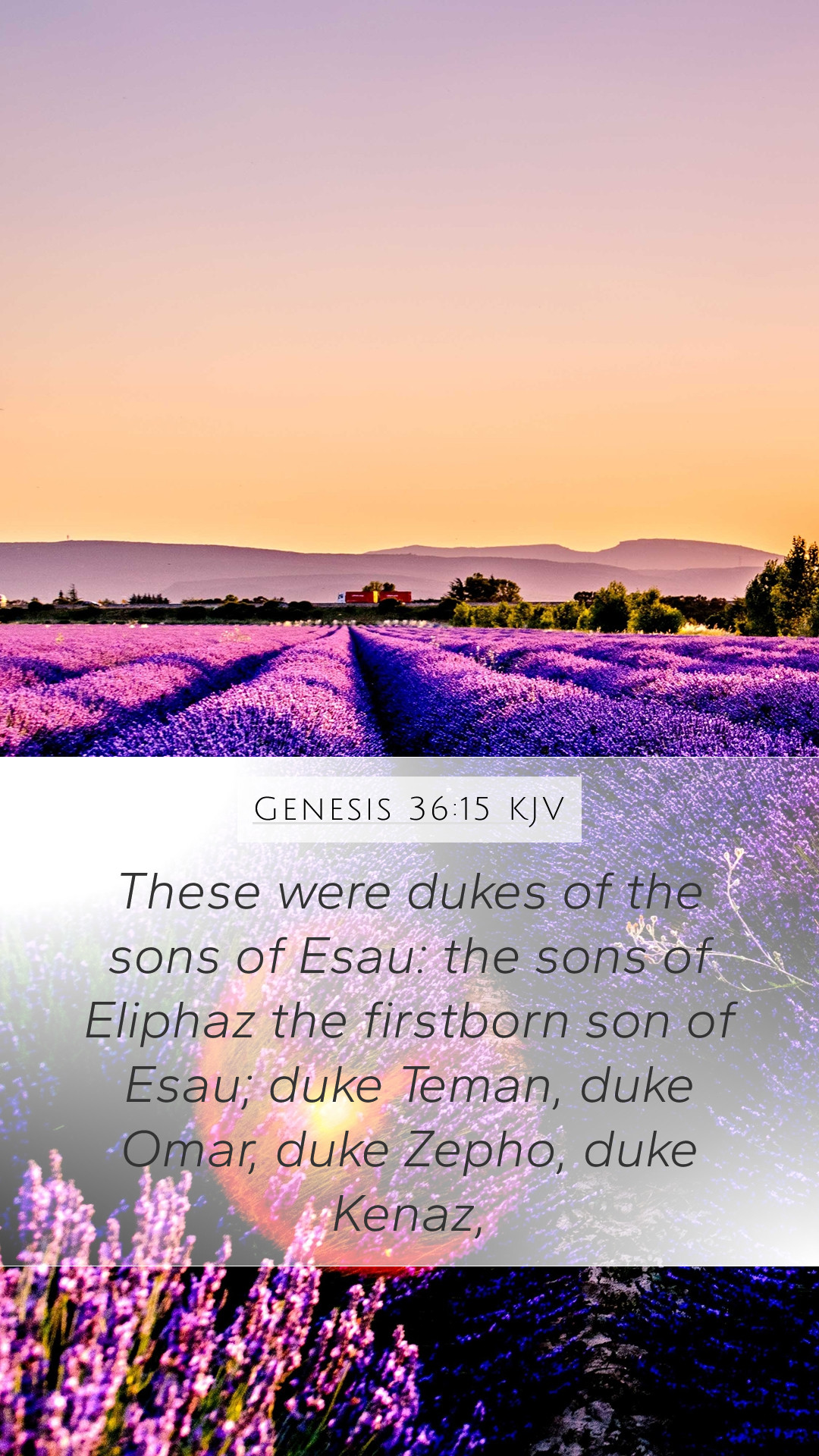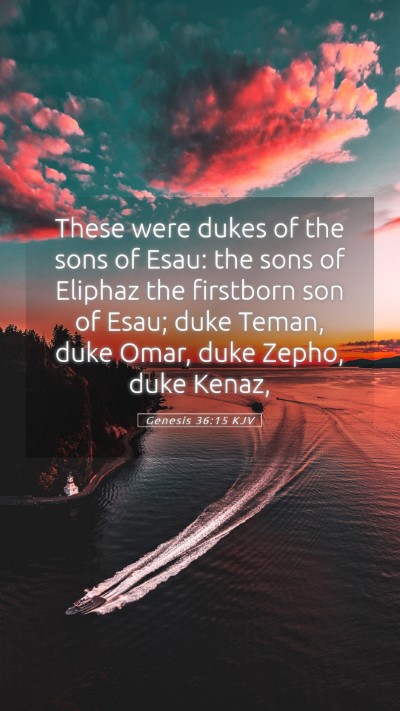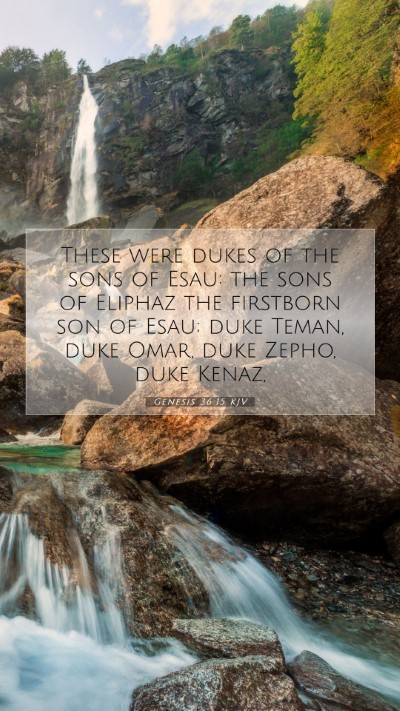Understanding Genesis 36:15 - A Deep Dive into the Meaning of Bible Verses
Genesis 36:15 states, "These were dukes of the sons of Esau: the sons of Eliphaz the firstborn son of Esau; Duke Teman, Duke Omar, Duke Zepho, Duke Kenaz." This verse discusses the lineage and leadership among the descendants of Esau, emphasizing their tribal organization and the importance of recognition of leaders within their communities.
Bible Verse Meanings and Interpretations
Several commentaries dive deep into the meanings and implications of this verse, offering various perspectives that enhance our understanding of Scripture. Below are summarized insights from public domain commentaries:
-
Matthew Henry:
Henry provides rich commentary on the family structure presented in Genesis 36:15, pointing out that it reflects God's promise to Esau and the blessings he received despite his tumultuous relationship with Jacob. The dukes signify authority and leadership roles among Esau's descendants, suggesting that even those outside the covenant received blessings and established significant roles in their societies.
-
Albert Barnes:
Barnes highlights the significance of names and titles mentioned in this verse as indicative of the social standing and identity of these individuals. Each duke mentioned can be seen as a tribal head, and their names represent distinct familial lines that hold historical and cultural relevance to the Edomite nation.
-
Adam Clarke:
Clarke focuses on the historical context of Esau's descendants, noting that their formation into dukedoms reflects a move towards organization, a trait essential for survival and governance. This commentary emphasizes the transition from familial relations to more formalized leadership structures, drawing a parallel with how groups historically band together for stability and support.
Significance of Genesis 36:15
The verse holds importance not only in understanding the family line of Esau but also in the broader narrative of Genesis. By establishing the leadership within Esau's tribe, the text sets a foundation for the historical context of the relationships between the descendants of Esau and Jacob.
Cross-References
- Genesis 25:30-34 - The selling of Esau's birthright.
- Genesis 36:1-8 - Detailed genealogy of Esau and his descendants.
- Deuteronomy 2:4-5 - God’s instructions regarding the land of Esau.
Applying Insights from Genesis 36:15
Engaging with Genesis 36:15 provides numerous lessons applicable to modern life. Understanding the significance of leadership structures within communities is essential, and the importance of family history can bolster one's identity. Furthermore, the historical context of such verses can guide believers in applying Bible verses to daily life.
Bible Study Tools and Resources
To explore deeper into this and other Bible verses, consider utilizing various Bible study tools and resources:
- Bible study guides that focus on genealogies.
- Online Bible study groups for collective interpretation.
- Historical contexts and cultural insights into Old Testament narratives.
Conclusion
In summary, Genesis 36:15 provides more than just a genealogical record. It can be understood as a reflection of the grace, historical significance, and organized structure of Esau’s descendants. As we analyze this passage, we gain not only biblical knowledge but also insights into how these verses can resonate in our lives today.


